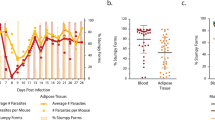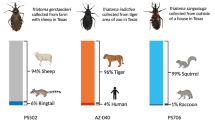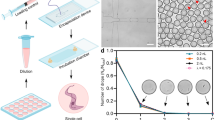Abstract
THE trypanosomes causing African sleeping sickness from the blood of man and other animals can be cultivated on non-living media. Such cultures exhibit one striking peculiarity: as soon as established they are not infectious for mammals.
This is a preview of subscription content, access via your institution
Access options
Subscribe to this journal
Receive 51 print issues and online access
$199.00 per year
only $3.90 per issue
Buy this article
- Purchase on SpringerLink
- Instant access to the full article PDF.
USD 39.95
Prices may be subject to local taxes which are calculated during checkout
Similar content being viewed by others
References
Weinman, D., Trans. Roy. Soc. Trop. Med. and Hyg., 51, 560 (1957).
Geigy, R., Huber, M., Weinman, D., and Wyatt, G. R., Acta Tropica, 16, 255 (1959).
Reichenow, E., Arch. Schiffs Trop. Hyg., 38, 292 (1934).
Weinman, D., Ann. N.Y. Acad. Sci., 56, 995 (1953).
Duke, H. L., Parasitology, 26, 153 (1934).
Roubaud, E., and Colas-Belcour, J., Bull. Soc. Path. Exot., 41, 343 (1948).
Author information
Authors and Affiliations
Rights and permissions
About this article
Cite this article
WEINMAN, D. Trehalose Metabolism of Trypanosomes. Nature 186, 166 (1960). https://doi.org/10.1038/186166a0
Issue date:
DOI: https://doi.org/10.1038/186166a0
This article is cited by
-
Properties of an Inhibitor of Trehalase in Trehalaseless Mutants of Neurospora
Nature New Biology (1972)



